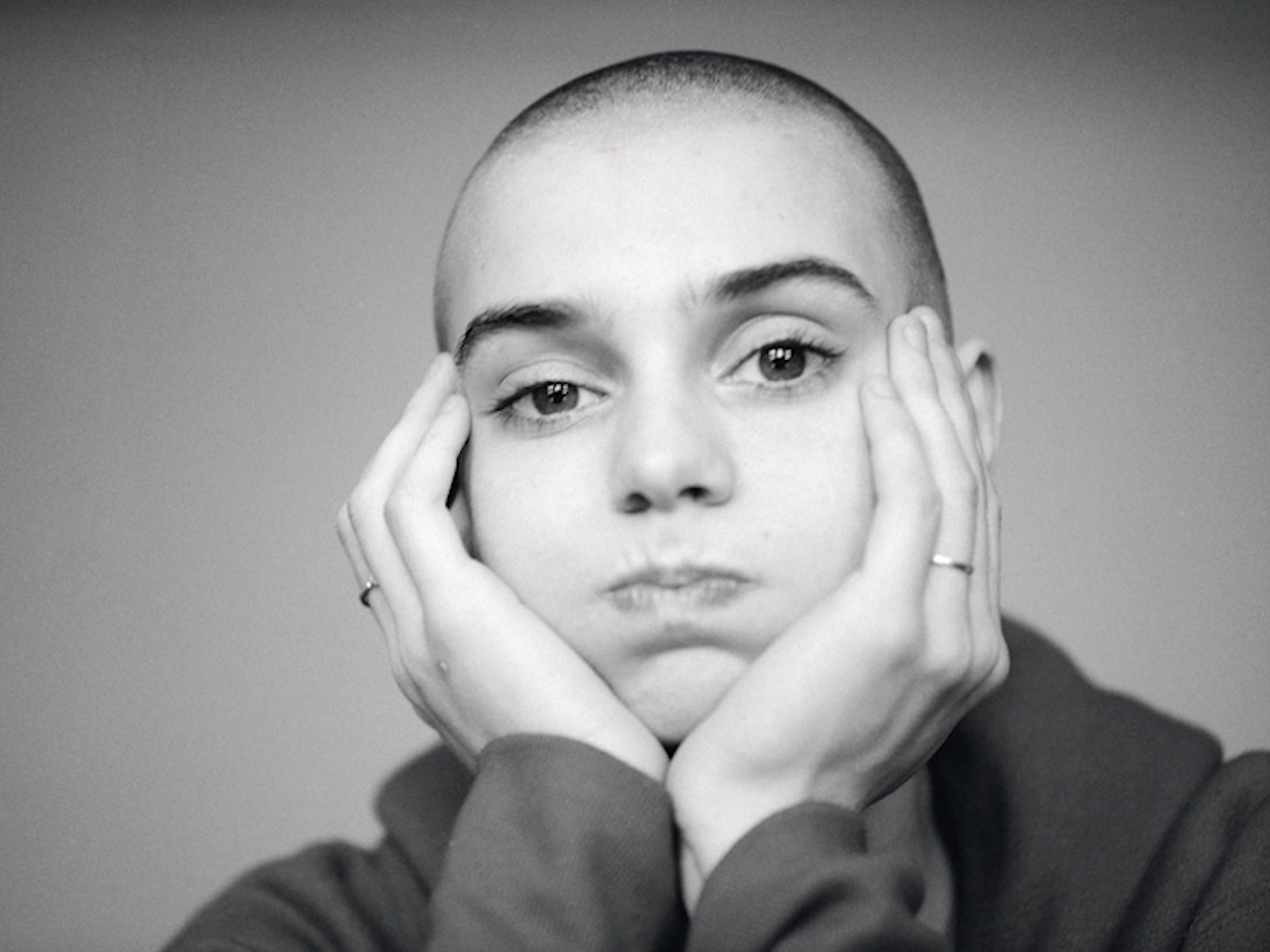
- Industry
Docs: “Nothing Compares” to Sinéad O’Connor
“I’m real proud to introduce this next artist whose name became synonymous with courage and integrity,” Kris Kristofferson says as he introduces Sinéad O’Connor at Bob Dylan’s 30th-anniversary concert. This was 13 days after O’Connor appeared on Saturday Night Live, performing an emotional, acapella version of Bob Marley’s “War.” She ended the powerful song, a protest against injustice in the world, by shouting “Fight the real enemy!” after tearing up a photo of Pope John Paul II.
Kathryn Ferguson’s documentary feature debut Nothing Compares begins in this deeply unsettling moment; with the exquisitely vulnerable O’Connor standing on stage, eventually comforted by Kristofferson, as the large Madison Square Garden crowd boos. The film, about the iconic Irish singer who changed her name to Shuhada Sadaqat in 2018, premiered as an official selection in the World Cinema Documentary Competition at this year’s Sundance Film Festival and recently screened at both the Seattle and San Francisco Film Festivals.
Traversing a troubled childhood and the pivotal years of her first three albums, the film uses old footage and new interviews, most importantly one with O’Connor herself, to reflect upon the singer’s journey. Director, co-writer, and Belfast native Ferguson thought it was well past time to revisit O’Connor’s public journey.
“In early 2018 when we began this project, the conversation around gender equality was reaching a fever pitch. In the US Trump was a year into his presidency, Weinstein was under investigation, Planned Parenthood was under attack,” Ferguson told me as she prepared for the film’s premiere at the San Francisco Film Festival. “In Ireland, women were fighting hard for abortion rights and there had recently been a successful equal marriage referendum. As a filmmaker with a long-standing interest in both Sinéad’s music and her story it felt absurd to me that there hadn’t been a film made about her and her vital contribution.”
When asked whether the recent success of Janet Jackson and Framing Britney Spears—two films about other powerful pop stars who were unfairly publicly shamed—had any influence on the making of the film, Ferguson explained: “The documentaries about Janet Jackson and Britney Spears came out while we were in pre-production, so I can’t say they inspired us to want to bring Sinéad’s story to the screen – but I am happy that our film feeds into a broader reevaluation of the treatment of women.”
O’Connor, however, did not appoint herself a social justice warrior: “There was no therapy when I was growing up so the reason I got into music was therapy, which is why it was such a shock for me to become a pop star, it’s not what I wanted, I just wanted to scream,” O’Connor recalled in the film. “I didn’t mean to be strong…I did suffer through a lot because everybody felt it was ok to kick the shit out of me.”
Growing up in Northern Ireland during the 1980s and 1990s, Ferguson understood O’Connor’s frustrations from an Irish point of view: “It was a very divided country to grow up in with the ongoing violent conflict in the North and the Catholic Church still very influential in Southern Ireland. Women and their rights, particularly their reproductive rights, were very low down the pecking order. When Sinéad burst into my consciousness, it felt like a door had been kicked open. Here was a bold Irish woman who said the things others didn’t feel they could say and she said them loudly. Both she and her music were galvanizing. We needed her.”
And yet, to avoid becoming a lecture, the weighty and heartfelt film may deftly underscore how revolutionary and farsighted O’Connor really was. At a time before social media and any viral street-cred for being politically conscious or an ‘ally’ were options, O’Connor offered the world a gender-antagonizing social awareness (and integrity) that was way ahead of her time.
“I was saddened and confused by how she was treated for putting her head above the parapet, it felt very demoralizing and something that stuck with me into adult life,” Ferguson recalled. “When I eventually began making films, my instinct was to focus on telling women’s stories and Sinéad was always at the forefront of my mind. She was very ahead of her time and in many ways a lone voice, certainly an unsupported one. Yet she refused to bow down to the ridicule and stuck to her convictions. It was interesting to see how many of the issues she spoke out about (such as police brutality, abortion reform in Ireland, and the objectification of women in the music industry) were being echoed by events 30 years later. I think we need to celebrate people who speak out about the things that people aren’t ready to hear because these are the people that create change.”
SHOWTIME is planning a theatrical release of Nothing Compares later this year in the U.S., UK, and Ireland ahead of the SHOWTIME premiere in the U.S., and its international partner streaming platforms later this year.

